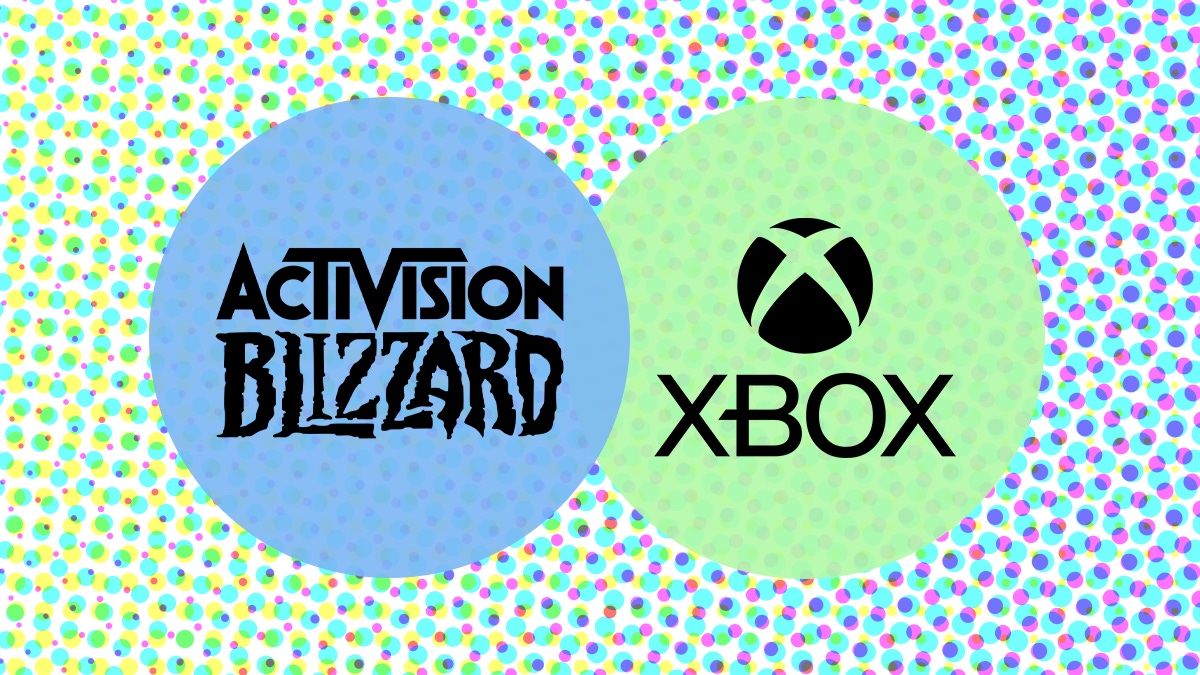Trending
Opinion: How will Project 2025 impact game developers?
The Heritage Foundation's manifesto for the possible next administration could do great harm to many, including large portions of the game development community.
Publishing the provisional findings of its investigation into the merger, the CMA said it believes the move will harm Microsoft's rivals and "result in a substantial lessening of competition."

UK regulator the Competition and Market's Authority (CMA) has provisionally found that Microsoft's proposed Activision Blizzard merger "may be expected to result in a substantial lessening of competition" within the game industry.
The CMA has been investigating the deal for months, and today published its provisional findings so interested parties can respond before the regulator reaches its final decision.
Although the CMA's provisional findings aren't set in stone, the fact the regulator still isn't convinced that Microsoft's proposed $68.7 billion deal will have a positive impact on the industry—as the Xbox maker has repeatedly claimed—isn't exactly Good News for the company.
Outlining its concerns, the CMA says it provisionally found "competition concerns" in the markets for gaming consoles and cloud gaming services in the UK, and again seems to be concerned that Microsoft could move to make key Activision Blizzard franchises such as Call of Duty (CoD) platform exclusive post-merger.
Microsoft has repeatedly denied it would take that route, and has offered to keep Call of Duty on rival platforms for at least the next decade.
"In relation to gaming consoles, we provisionally found that Xbox and PlayStation compete closely with each other, and that Activision’s Call of Duty (CoD) is important to the competitive offering of each. The evidence suggests that, after the Merger, Microsoft would find it commercially beneficial to make CoD exclusive to Xbox or available on Xbox on materially better terms than on PlayStation," wrote the CMA.
"We provisionally found that this would substantially reduce competition in gaming consoles to the detriment of gamers—Xbox and PlayStation gamers alike—which could result in higher prices, reduced range, lower quality, worse service, and/or reduced innovation."
The regulator is also worried that the deal will allow Microsoft to give its cloud gaming offering an unfair advantage over rivals by making franchises like Call of Duty and World of Warcraft exclusive to its own service. Again, the CMA's concerns are focused on the fact that Microsoft will find it "commercially beneficial" to ensure major series can only be accessed by buying into the Xbox ecosystem.
"We provisionally found that, after the Merger, Microsoft would find it commercially beneficial to make Activision’s titles exclusive to its own cloud gaming service or available there on materially better terms than on rival cloud gaming services," added the CMA.
"Given we have provisionally found that Microsoft already has a strong position in this market through its ownership of Xbox, a global cloud computing service, and the leading PC operating system (OS), we are concerned that even a moderate increment to its strength may be expected to substantially reduce competition in this developing market to the detriment of current and future cloud gaming users."
Based on its provisional findings, the CMA has put forward a list of "feasible" remedies that could allow the deal to go ahead such as a partial divestiture of Activision Blizzard that would see key franchises and business segments sold off.
Alternatively, the CMA also believes that prohibiting the merger outright will represent a "comprehensive solution" to all of its concerns.
Anybody wishing to comment on the provisional findings to explain why they shouldn't become final has until March 1, 2023, to send them to the CMA Inquiry Group. The regulator will publish its final report on April 26, 2023.
In a statement sent to Game Developer, Microsoft said it wants to offer "effective" and "enforceable" solutions that address the CMA's concerns, and will be working with the regulator to help provide remedies that ensure the deal is approved.
"We are committed to offering effective and easily enforceable solutions that address the CMA's concerns. Our commitment to grant long term 100% equal access to Call of Duty to Sony, Nintendo, Steam and others preserves the deal’s benefits to gamers and developers and increases competition in the market," said Rima Alaily, Microsoft corporate vice president and deputy general counsel.
"75 percent of respondents to the CMA‘s public consultation agree that this deal is good for competition in UK gaming. When we say equal [access], we mean equal. 10 years of parity. On content. On pricing. On features. On quality. On playability."
You May Also Like